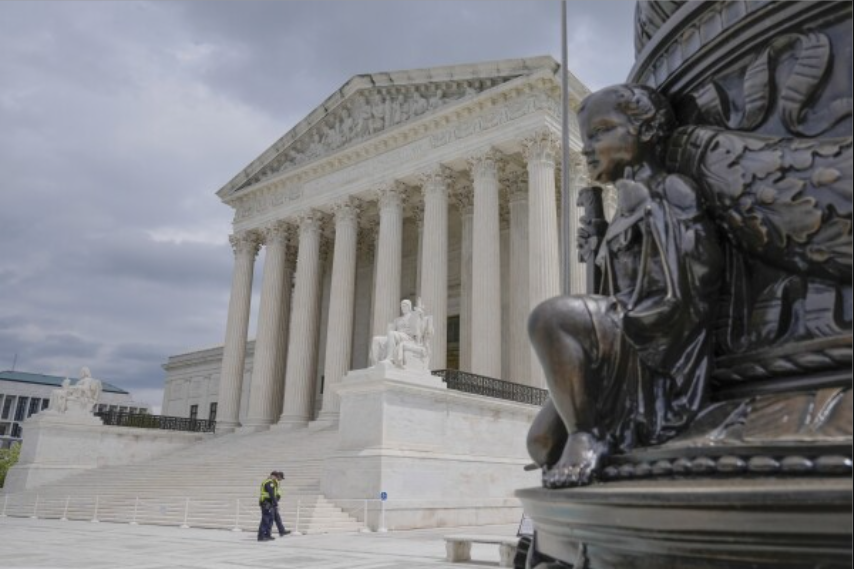The Supreme Court’s recent hearing on former President Donald Trump’s claim to absolute immunity in his federal election subversion case has attracted considerable attention.
The justices expressed skepticism about Trump’s sweeping immunity claims but were cautious about granting special counsel Jack Smith unlimited authority to pursue charges.
Despite three hours of oral arguments, the Supreme Court seems poised to find a middle ground, possibly impacting the timing of the case and potentially affecting the trial’s scheduling.
Below are the significant takeaways from the hearing.
Ambiguity on Absolute Immunity
The court seemed unlikely to provide a definitive ruling on whether Trump could face prosecution for his alleged efforts to overturn the 2020 election results.
This uncertainty could prolong the case and complicate the prospects of holding a trial before the upcoming presidential election.
Chief Justice John Roberts highlighted this ambiguity by questioning the ruling of the US Court of Appeals for the DC Circuit, which had permitted the case to move swiftly to trial.
Roberts indicated that the appeals court hadn’t provided sufficient reasoning to justify why virtually all of Trump’s actions could be prosecuted.
He questioned, “As I read it, it says simply a former president can be prosecuted because he’s being prosecuted.
Why shouldn’t we either send it back to the court of appeals or issue an opinion making clear that that’s not the law?”
Concessions and Immunity Boundaries
In an unexpected turn, Trump’s attorney, John Sauer, conceded that some of Trump’s alleged conduct might not fall under presidential immunity.
Justice Amy Coney Barrett pressed Sauer on the difference between Trump’s official presidential actions and personal conduct, leading him to admit that certain acts, such as Trump’s phone call with Georgia Secretary of State Brad Raffensperger, were not official.
However, he argued that Trump’s actions involving the Republican National Committee and Arizona lawmakers could be seen as official.
Sauer’s concession represents a significant shift from Trump’s earlier position, acknowledging that some allegations in the indictment might not be protected by immunity.
The implication of this concession could be a lengthier review process, further delaying the case’s progression to trial.
Liberal Justices and Absolute Immunity Concerns
The court’s liberal justices, including Sonia Sotomayor, Elena Kagan, and Ketanji Brown Jackson, expressed strong skepticism regarding Trump’s absolute immunity claim.
They questioned whether a president could act without accountability, with Kagan asking whether a president ordering a military coup would be immune under Trump’s theory.
Sauer’s response—suggesting that impeachment and conviction might be necessary before criminal prosecution—did not sit well with the liberal justices.
Jackson challenged Trump’s claim, stating, “If there’s no threat of criminal prosecution, what prevents the president from just doing whatever he wants?”
She highlighted the potential risk of granting immunity to a president, which could lead to unchecked abuse of power.
Conservative Justices’ Concerns Over Political Prosecutions
Conservative justices appeared concerned about subjecting former presidents to criminal prosecutions that might be politically motivated.
Justice Samuel Alito suggested that denying immunity to former presidents could undermine the peaceful transfer of power, potentially causing them to resist leaving office.
The conservative justices questioned the potential for abuse by prosecutors and pointed out that some statutes might need to be interpreted differently when applied to former presidents, which could add unnecessary burdens on them.
Closing Arguments and the Path Forward
The conclusion of the hearing marks the beginning of the Supreme Court’s deliberation.
The justices are now tasked with deciding the extent of Trump’s immunity and how it applies to the ongoing criminal proceedings against him.
The court’s decision will have a significant impact on the timing and trajectory of Trump’s trial and may shape the broader legal context for prosecuting former presidents in the future.

